I have a pointer to a pointer ("paths") and I want to reallocate each pointer (each "path"). But I get a crash. Generally I am trying to find all possible powers of a number, which one can compute for some amount of operations (e.g for two operations we can get power of three and four (one operation for square of a number, then another one either for power of three or four)). I figured out how to do it on paper, now I am trying to implement it in code. Here is my try:
#include <stdio.h>
#include <stdlib.h>
void print_path(const int *path, int path_length);
int main(void)
{
fputs("Enter number of operations? ", stdout);
int operations;
scanf("%i", &operations);
int **paths, *path, npaths, npath;
npaths = npath = 2;
path = (int*)malloc(npath * sizeof(int));
paths = (int**)malloc(npaths * sizeof(path));
int i;
for (i = 0; i < npaths; ++i) // paths initialization
{
int j;
for (j = 0; j < npath; ++j)
paths[i][j] = j+1;
}
for (i = 0; i < npaths; ++i) // prints the paths, all of them are displayed correctly
print_path(paths[i], npath);
for (i = 1; i < operations; ++i)
{
int j;
for (j = 0; j < npaths; ++j) // here I am trying to do it
{
puts("trying to reallocate");
int *ptemp = (int*)realloc(paths[j], (npath + 1) * sizeof(int));
puts("reallocated"); // tried to write paths[j] = (int*)realloc...
paths[j] = ptemp; // then tried to make it with temp pointer
}
puts("memory reallocated");
++npath;
npaths *= npath; // not sure about the end of the loop
paths = (int**)realloc(paths, npaths * sizeof(path));
for (j = 0; j < npaths; ++j)
paths[j][npath-1] = paths[j][npath-2] + paths[j][j];
for (j = 0; j < npaths; ++j)
print_path(paths[j], npath);
puts("\n");
}
int c;
puts("Enter e to continue");
while ((c = getchar()) != 'e');
return 0;
}
void print_path(const int *p, int pl)
{
int i;
for (i = 0; i < pl; ++i)
printf(" A^%i -> ", p[i]);
puts(" over");
}
